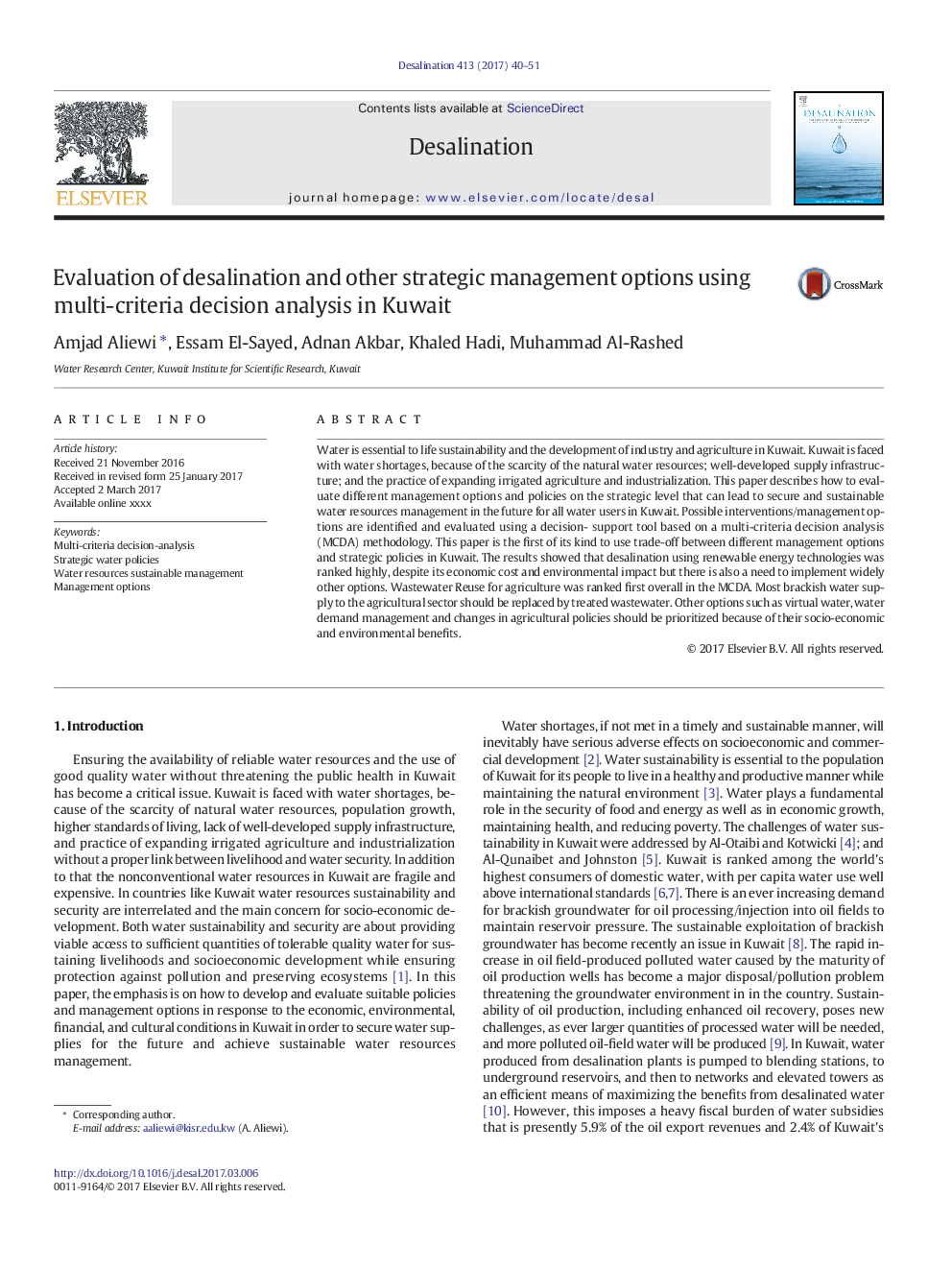ترجمه فارسی عنوان مقاله
ارزیابی آب شیرین کن و سایر گزینه های مدیریت استراتژیک با استفاده از تجزیه و تحلیل تصمیم گیری چند معیاره در کویت
عنوان انگلیسی
Evaluation of desalination and other strategic management options using multi-criteria decision analysis in Kuwait
| کد مقاله | سال انتشار | تعداد صفحات مقاله انگلیسی |
|---|---|---|
| 83509 | 2017 | 12 صفحه PDF |
منبع

Publisher : Elsevier - Science Direct (الزویر - ساینس دایرکت)
Journal : Desalination, Volume 413, 1 July 2017, Pages 40-51
ترجمه کلمات کلیدی
تجزیه و تحلیل تصمیم گیری چند معیاره، سیاست های آب استراتژیک، مدیریت پایدار منابع آب، گزینه های مدیریت،
کلمات کلیدی انگلیسی
Multi-criteria decision-analysis; Strategic water policies; Water resources sustainable management; Management options;

